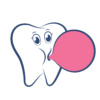Saliva is a vital part of our oral cavity. It aids in the lubrication of food, and the formation of a bolus. Saliva has numerous other functions. However, in some cases, your body may not produce sufficient saliva. The mouth gets dry. It makes people feel uncomfortable. In this article, we will cover the symptoms, causes, and treatment strategies for dry mouth. Let’s find out what causes dry mouth and how to relieve it.
| What Causes Dry Mouth? | Symptoms of Dry Mouth | How to Relieve Dry Mouth? | Should I See A Doctor If I Have A Dry Mouth? | What Food Is Good For Dry Mouth? | Which Vitamin Deficiency Causes Dry Mouth? | References |
What Causes Dry Mouth?
Dry mouth can occur from a variety of issues. Here are the most common conditions responsible for Xerostomia (technical term for “dry mouth”):
- Medication: Medications cause many side effects, a common of which is dry mouth. If you are using medicines to treat allergies, hypertension, and many other conditions, you can experience dry mouth.
- Medical Condition: If you have a dry mouth, perhaps you would have an underlying medical condition. AIDS, diabetes, anemia, and hypertension reduce saliva production.
- Medical Treatments: Chemotherapy or radiation therapies affect the activity of the salivary gland. It is more pronounced if radiation therapy occurs in the head or neck region.
- Lifestyle: Lifestyle habits including smoking, alcohol, insufficient water intake, and breathing with an open mouth cause dry mouth symptoms.
- Nerve Damage: Nerve damage from an injury or surgery may also be responsible for Xerostomia. Nerve damage to head and neck nerves further worsens the condition.
Salivary glands are removed in some disease conditions. Removing them means you cannot produce saliva. It causes uncomfortable digestion and a burning sensation in the mouth.
Symptoms of Dry Mouth
People often confuse dry mouth or Xerostomia with other conditions. You should be aware of Xerostomia symptoms to diagnose your condition effectively. Here are the commonly mentioned symptoms of Xerostomia patients:
- The oral cavity feels dry and sticky
- You feel the urge to drink water frequently
- Dry and reddish tongue
- Bad odor from mouth
- Throat feels dry which can cause dry cough
- Burning or tingling feeling in the mouth region
- Cracked lips
- Sores in the mouth
- Difficulty in swallowing
- Dry nasal passages
How to Relieve Dry Mouth?
A dry mouth makes your life difficult. You cannot swallow properly, and get a burning sensation in the oral cavity. Here are some remedies you can try out to relieve dry mouth. If you are experiencing dry mouth due to medical conditions, you need proper treatment for it. These remedies only aid in relieving the symptoms.
Stay Hydrated
Since dehydration causes dry mouth, you should stay hydrated. Increase your water intake more than usual. 9-13 glasses of water are recommended per day. [1] This strategy is effective for mild cases of dry mouth.
Avoid Medications
90% of cases of Xerostomia are caused by medications. You should stay away from antihistamines, antihypertensives, and hormonal medications to relieve dry mouth. However, if you are taking medicines based on a doctor’s prescription, consult with him before you drop them.
Lifestyle changes
The first lifestyle recommendation is to limit the use of caffeine and sugar-containing foods (. Caffeinated beverages increase urination, so are responsible for dehydration. Sugary beverages are also associated with dry mouth. [2] Limit your alcohol intake and replace it with water. Smoking can further worsen the symptoms of dry mouth, so refrain from smoking (nicotine gum can help you with this).
Oral Hygiene
Poor oral hygiene is associated with many problems, one of which is dry mouth. Maintain good oral hygiene practices. Brushing teeth properly after meals, use floss / interdental brush, and use fluoride toothpaste. You can also use mouthwashes.
Note: Many mouthwashes contain alcoholic products. Always pick an alcohol-free mouthwash if you experience dry mouth.
Breathing Pattern
54% of people in a survey were shown to breathe through mouth. [3] An open mouth means that moisture can evaporate into the surroundings. It makes the tongue and throat dry. Though this habit is difficult to alter, you should try to breathe through the nasal passages.
Use a Humidifier
You can add moisture to your surroundings through a humidifier, which can alleviate dry mouth symptoms. It is a good way to reduce discomfort.
OTC Saliva Alternatives
Medications are also available to relieve dry mouth. Saliva substitutes help to produce saliva, yet they will not provide a cure for Xerostomia. It is only a temporary relief.
Herbal Remedies
Natural herbs also find their position in treating dry mouth. You can use Aloe vera as it has a high moisture content. Hollyhock root has a similar moistening action. Ginger is widely used to treat dry mouth. All these products work by stimulating saliva production. [4]
Chewing Gum
Chewing gums aids in relieving dry mouth symptoms. It stimulates the function of salivary glands and increases the production of saliva. Xylitol present in some chewing gums, can also stimulate saliva production. If you are experiencing dry mouth, try out xylitol-containing chewing gum. They are a healthier option, that will provide you with numerous other benefits. It has no side effects and does not contribute to dental caries like regular sugar-containing chewing gums. Sugar-free chewing gum with xylitol content (only) is a good alternative for you.
Should I See A Doctor If I Have A Dry Mouth?
Dry mouth is a common problem. People usually face it once in their lives. Try to make lifestyle changes, but if they do not help manage the condition, and dry mouth persists, you should see a healthcare practitioner. Early diagnosis of the condition would prevent it from worsening.
What Food Is Good For Dry Mouth?
A dry mouth affects the ability to swallow. Yet, you should not stop eating due to this discomfort. Take a soft and pureed diet, like moist casseroles and gravy-containing foods. Fulfill your caloric and nutrient requirements through smoothies and soups.
Note: Intake of cow’s milk makes the saliva thicker. Refrain from cow’s milk if you experience dry mouth. Use substitutes such as soy, rice, or almond milk.
Which Vitamin Deficiency Causes Dry Mouth?
A deficiency of vitamin A and certain B vitamins can remove moisture from the mucous membranes of the oral cavity. Severe cases result in wounds on the tongue. Maintain an adequate intake of vitamin A and B-complexes if you experience dry mouth.
References
[1] Recommended Water Intake – https://www.hsph.harvard.edu/nutritionsource/water/
[2] Effect of Caffeinated Drinks on Salivary Flow – https://www.ncbi.nlm.nih.gov/pmc/articles/PMC3777298/
[3 Impact of Breathing Pattern on Quality of Life – https://pubmed.ncbi.nlm.nih.gov/27657891/
[4] Ginger Benefits in Reliving Dry Mouth – https://www.ncbi.nlm.nih.gov/pmc/articles/PMC4377061/

